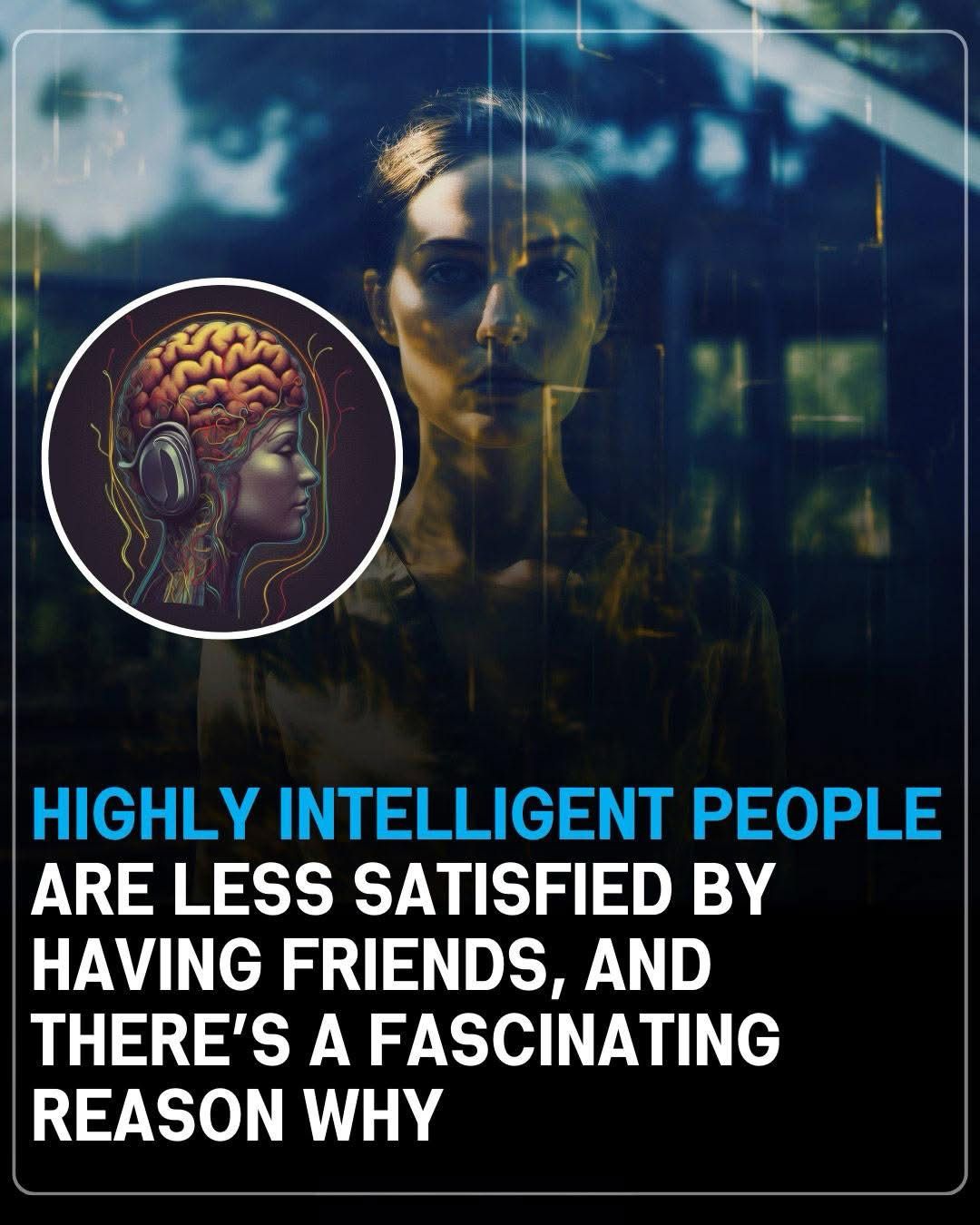Have you ever wondered why some of the most intelligent people you know seem less interested in social gatherings or don’t maintain a large group of friends? Maybe you’ve got that one brilliant friend who’d rather spend their Friday night reading a book, perfecting a personal project, or diving deep into a new idea instead of hitting up a party. It might seem puzzling at first—aren’t we all supposed to enjoy socializing? But research suggests this behavior isn’t a flaw or shyness—it could actually be a reflection of how high intelligence shapes happiness and social satisfaction. In fact, if you’ve ever been content with a small social circle—or even just your own company—that might be a sign of exceptional intelligence, not something to be concerned about.

Let’s explore why some of the brainiest individuals out there often feel less fulfilled by frequent social interactions and why that might actually make total sense.
Why Humans Are Wired for Connection
To understand this surprising connection between intelligence and social habits, we need to rewind thousands of years. Human beings evolved in small tribes, living and working together to survive. Our ancestors relied on close relationships for hunting, safety, child-rearing, and emotional support. According to the “savanna theory of happiness,” our brains are still hardwired to function best in that kind of environment—where we lived in groups of around 150 people, all familiar, all connected.
Modern science has confirmed this wiring. Research shows that, for most people, social interaction boosts happiness and well-being. Whether it’s grabbing coffee with a close friend or chatting with coworkers, those moments of connection light up our brains in all the right ways. That’s why people in tight-knit communities often report higher levels of happiness, and why living in densely populated cities with minimal social connection can lead to stress and dissatisfaction.
But here’s the twist: not everyone’s brain responds to social interaction the same way—especially those with higher-than-average intelligence.
Why More Socializing Doesn’t Always Equal More Joy for the Smartest Minds
A major study published in the British Journal of Psychology in 2016 examined over 15,000 people and looked at how intelligence and social interactions relate to life satisfaction. For the general population, the results were as expected—more frequent socializing led to greater happiness. But among the most intelligent individuals in the study, something unusual happened. That same pattern didn’t hold. In fact, people with the highest IQs often reported less life satisfaction when they spent more time socializing.
This unexpected finding has been described as a “happiness paradox.” While most of us get an emotional lift from hanging out with friends, highly intelligent people may feel the opposite. Frequent socializing can leave them feeling drained, distracted, or even dissatisfied. That doesn’t mean they dislike people—rather, they tend to experience the world differently and often prioritize their energy in unique ways.
The Logic Behind the Loneliness (That Isn’t Really Loneliness)
There are a few theories that help explain this phenomenon. First, highly intelligent individuals often have strong long-term goals and passions. Whether it’s writing a novel, coding a new app, composing music, or researching a complex topic, these goals require focus, time, and mental clarity. Long social events or too much small talk can feel like interruptions to these pursuits rather than welcome distractions.
Secondly, intelligent people often seek quality over quantity when it comes to friendships. Instead of spreading themselves thin across dozens of social connections, they’re more fulfilled by a few deep, meaningful relationships. Think of it like choosing a fine dining experience over a crowded buffet—you might walk away with less variety, but far more satisfaction.
Another reason is adaptability. While most human brains are still wired for tribal living, highly intelligent people tend to adapt better to modern society’s fast-paced, tech-driven, and often isolating environments. They may not feel the same emotional hunger for constant connection because they’ve developed internal resources to stay emotionally regulated and content on their own.
Lastly, smart individuals often find real joy in solitude. They’re naturally introspective, curious, and creative. Spending time alone isn’t lonely for them—it’s productive, inspiring, and even energizing. This is why someone highly intelligent may prefer working late into the night on a passion project rather than attending a social event, even if they genuinely like the people involved.
A Real-Life Example: Alex the Developer
Take Alex, a brilliant software developer working on an education app he believes could change lives. His college friends invite him to hang out regularly, and while he occasionally joins them, most of the time he declines. It’s not because he doesn’t care—it’s because he feels most alive when he’s deep in code, making progress on something meaningful. He has a couple of close friends he talks to regularly, and that’s more than enough for him. For Alex, happiness doesn’t come from group gatherings—it comes from purpose and meaningful relationships.
The Takeaway
Not all smart people are introverts, and not every introvert is a genius. But when you look at a broad population, the data shows a trend: those with higher intelligence are more likely to be satisfied with less social interaction. It doesn’t mean they’re antisocial. It means their brain is wired to thrive in a way that’s slightly different from the average person’s.
So if you or someone you know prefers a quiet evening alone or a small gathering of close friends instead of a big social bash, don’t worry. It might just be a sign of intelligence—and a different, but equally valid, path to happiness.





